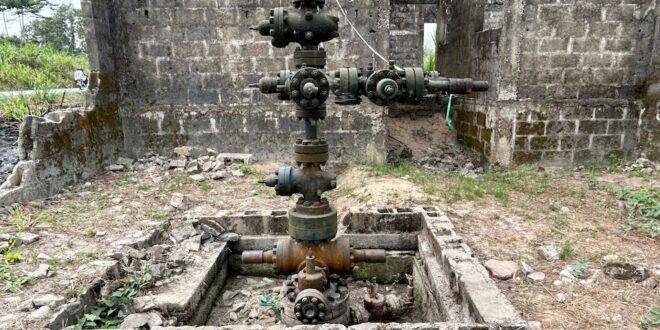Major oil companies such as Exxon Mobil (XOM.N), opens new tab and Shell (SHEL.L)
, opens new tab that aim to exit Nigeria’s onshore oil can get quicker approval to do so if they take responsibility for spills rather than wait for authorities to apportion blame, the regulator said on Friday.
Exxon, Shell, TotalEnergies (TTEF.PA) have all sought to leave Nigeria’s oil-rich Niger delta in recent years citing security concerns, including theft and sabotage, to focus on deepwater drilling. However, their exits have been delayed by regulatory hurdles.
At a meeting with the companies in Abuja, Nigerian Upstream Petroleum Regulatory Commission (NUPRC) chief Gbenga Komolafe offered a short-term option with faster approval if the companies commit to cleaning up spills and compensating communities.
“We have the undertaking here. The consent here though fixed for June, could be much shorter,” he said.
“If you agree to take that option, you sign the undertaking knowing that there are obligations to be fulfilled,” Komolafe said.
The second long-term option involves waiting for NURPC to identify and assign all liabilities, potentially delaying the final approval until August.
NURPC is seeking to balance a faster exit for oil majors with protecting the environment, local communities, and the long-term viability of the assets.
The companies are reviewing the options and will respond soon, they said.
Analysts say the accelerated option could cost oil majors millions of dollars for cleanups and reparations.
“The risk with option 1 is the transferor will continue to take responsibility for the asset until the process is completed while option 2 puts them at the mercy of the regulator since they waived their right to deemed approval,” said Ayodele Oni, energy lawyer at Lagos-based Bloomfield law firm.
The departure of the majors means a total of 26 onshore blocks are on offer, holding an estimated reserve of 13.76 billion barrels of oil, 2.70 billion barrels of condensate, and about 90,717 billion cubic feet of gas, NUPRC said.
“We aim to ensure that the companies that take over these blocks have the necessary financial resources and possess the technical expertise required to responsibly manage the blocks throughout their lifecycle in accordance with good asset stewardship practices,” Komolafe said.
NUPRC has engaged two global oil and gas decommissioning consultants, S&P Global Commodity Insights and Boston Consulting Group, to carry out due diligence on the assets to be divested.
 Eurasia Press & News
Eurasia Press & News



